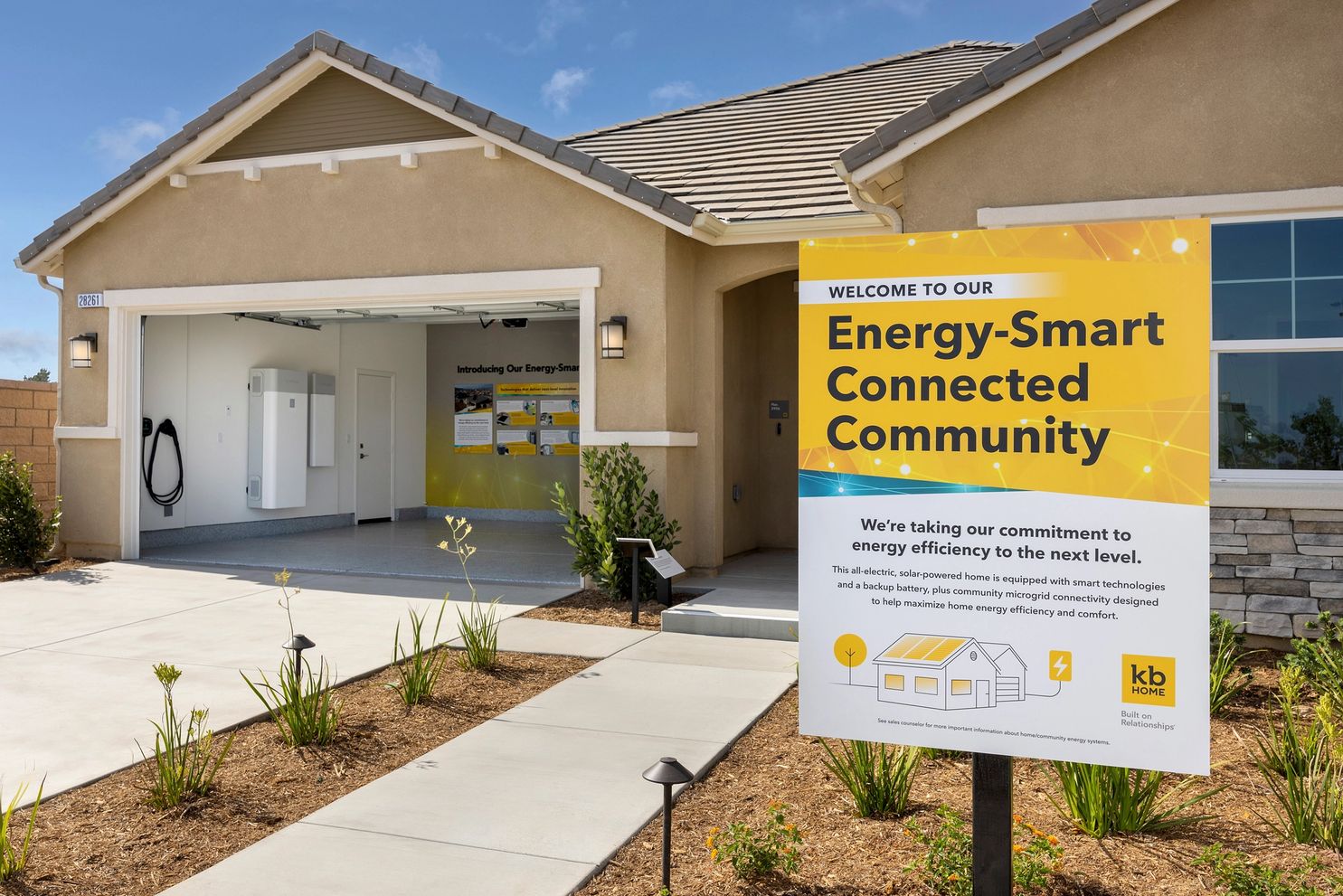KB Home, in operation since 1957, recently announced 219 fully electrified homes.

Wood. Cement. Steel. Solar panels?
As consumer demand for more environmentally friendly products and services increases, one of the biggest home builders in the US is looking to test the market for fully electrified, solar-powered homes.
KB Home, a home builder in operation since 1957, recently announced two all-electric solar- and battery-powered communities—a total of 219 homes—in Menifee, California, designed for first-time homeowners. The houses, the first of which will be delivered in early next year represent the company’s first foray into fully electrified developments.
The 219 homes would be a drop in the bucket compared to the 9,952 homes the company delivered through Q3 of 2022,, but right now, according to Dan Bridleman, senior VP of sustainability, technology, and strategic sourcing at KB Home the project is an early experiment with microgrid communities and an attempt to learn what works.
Though Bridleman said in a follow-up email that KB doesn’t currently have plans to build additional microgrid communities, if this project is successful, he said, it could lead to further developments as the home builder studies and learns from this initial microgrid project.
“You want to gain knowledge as you do this and determine if this is a plausible strategy going forward,” Bridleman said. “The grid situation in most countries isn’t going to get any easier, and power isn’t going to get any easier, and decarbonization is not going to get any easier. Having renewable energy that basically provides your house with this seamless process certainly looks to us like something the future is going to need.”
The houses, replete with everything from solar panels to heat pumps, will range from $490,000 to $600,000, and are designed to create “a redundant power system,” Bridleman said. KB’s partners on the project include Schneider Electric, Kia, the Advanced Power and Energy Program at UC Irvine, Southern California Edison, SunPower, and the Department of Energy, which provided a $6.5 million grant to the project.
For KB, which reported $1.8 billion in revenue in Q3, these homes are ultimately part of a broader plan to try and stay ahead of the technological curve, Bridleman told us.
“There’s a lot of companies that were around, you know, 20 years ago that we thought would still be in business. The minute you stop thinking about innovation and technology, and you get stuck, and you’re not thinking about what may happen to you when it comes time for the next move, I think you have to be constantly looking for the future,” he said.
Source: Energy Tech Brew

